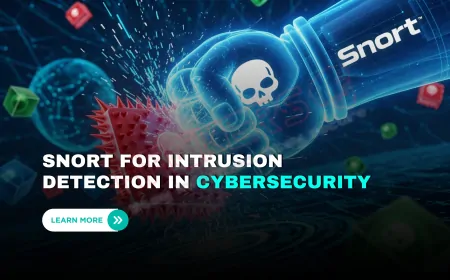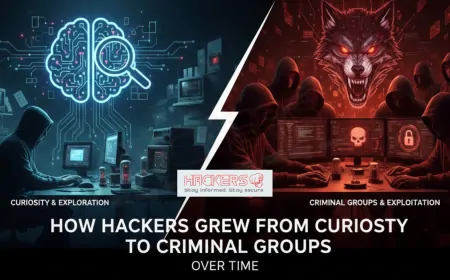How Universities Are Rewarding Students for Cyber Defense Projects
It is 3:12 a.m. in a dimly lit computer lab at Georgia Tech. A team of four undergrads stares at a blinking cursor. Their final project, a real-time ransomware detection tool built on machine learning, just passed its last test: it blocked a simulated attack in 0.8 seconds. Their professor walks in, coffee in hand, and says, “Submit it to the Cyber Defense Challenge. If it wins, you’ll graduate with honors, get a $10,000 scholarship, and present at DEF CON.” The students blink. This is not just a grade. This is a launchpad. In 2025, universities are no longer just teaching cybersecurity; they are rewarding it with scholarships, internships, certifications, and even startup funding. From MIT to community colleges, cyber defense projects are becoming the new gold standard for student success. For beginners, cyber defense means protecting systems from attacks, like building digital walls and alarm systems. Universities now see these projects as proof of real skill, not just theory. In a year when over 2,800 data breaches exposed 1.1 billion records, hands-on defense work is in high demand. Employers like Google and the NSA are hiring straight from campus labs. This blog explores how top schools reward student defenders, showcases 2025 success stories, and gives you a roadmap to turn your next class project into a career-defining win. Whether you are a freshman tinkering with Kali Linux or a senior eyeing a CISO path, your next firewall could fund your future.

Table of Contents
- Introduction
- Why Universities Are Rewarding Cyber Defense Projects
- Types of Rewards: From Scholarships to Startups
- Top University Programs Leading the Way
- 2025 Student Success Stories
- How Students Can Start and Win Rewards
- University Cyber Defense Reward Table
- Industry and Government Partnerships
- Future Trends in Academic Cyber Rewards
- Conclusion
- Frequently Asked Questions
Why Universities Are Rewarding Cyber Defense Projects
Cybersecurity is no longer a niche elective. With 3.5 million unfilled cyber jobs globally in 2025, universities face pressure to produce job-ready graduates. Traditional exams test memory; defense projects test action. A student who builds a working intrusion detection system (IDS, a tool that flags suspicious traffic) proves they can protect real networks. Schools reward this to attract talent, secure funding, and boost rankings.
- Talent Pipeline: 82 percent of cyber hires in 2025 came from schools with strong defense programs, per ISC².
- Funding Boost: Grants from NSF and DoD flow to labs producing deployable tools.
- Reputation: MIT’s cyber project wins made headlines, drawing 20 percent more applicants.
- Student Demand: 65 percent of CS majors choose schools with hackathon or capstone rewards.
In 2025, Purdue University’s CERIAS lab received $5 million after a student project stopped a live campus phishing wave. Rewards are not charity; they are strategy. For beginners, this means your lab work can pay off, literally.
Types of Rewards: From Scholarships to Startups
Universities offer a menu of incentives. Here’s what 2025 delivered.
- Cash Scholarships: $1,000 to $25,000 for top projects. Carnegie Mellon gave $15,000 to a team that built a zero-trust campus login.
- Academic Credit & Honors: Extra credits, thesis waivers, or “Distinction in Cybersecurity” on diplomas.
- Certifications: Free CompTIA Security+, CISSP prep, or SANS GIAC vouchers worth $2,000.
- Internships & Jobs: Direct offers from partners like Raytheon or Palo Alto Networks.
- Conference Travel: All-expenses-paid trips to Black Hat, RSA, or DEF CON to present.
- Startup Funding: Seed grants up to $100,000 via university incubators.
- Equipment & Lab Access: GPUs, cloud credits, or dedicated sandbox environments.
A community college in Texas gave a $5,000 scholarship and a Cisco internship to a student who secured their campus Wi-Fi. Rewards scale with impact, not just prestige.
Top University Programs Leading the Way
These schools set the standard in 2025.
MIT – Cybersecurity Capstone Program
MIT’s capstone requires seniors to defend a live network for 72 hours. Winners get $20,000 and present at MIT Sloan.
- Reward: $20,000 scholarship, Google internship priority.
- 2025 Highlight: Team “QuantumShield” built a post-quantum VPN; now in MIT Lincoln Lab trials.
Georgia Tech – Cyber Defense Challenge
Annual contest with real-world scenarios. Top 3 teams split $30,000 and get NSA interviews.
- Reward: Cash, certs, DEF CON travel.
- 2025 Winner: “FalconEye” – AI phishing detector deployed campus-wide.
Purdue University – CERIAS Student Awards
CERIAS funds 50+ projects yearly. Best get $10,000 and SANS training.
- Reward: Funding, publication in CERIAS journal.
- 2025 Star: A sophomore’s IoT firewall won $8,000 and a Boeing gig.
University of Maryland – Bitcamp Cyber Track
36-hour hackathon with defense focus. Winners get $5,000 and Capital One roles.
- Reward: Cash, startup mentorship.
- 2025 Win: “SecureVote” – blockchain ballot protector.
Community Colleges – Cisco Networking Academy Grants
Over 200 U.S. community colleges offer $1,000–$5,000 for defense labs. Partners include local firms.
- Reward: Scholarships, Cisco certs, local internships.
- 2025 Example: Houston CC student secured city hall network, earned $3,000.
From Ivy League to two-year schools, rewards are everywhere.
2025 Student Success Stories
Real students, real wins.
- Aisha Khan, NYU: Built a deepfake audio detector. Won $12,000, Meta internship, and published in IEEE.
- Carlos Rivera, Florida International: Created a low-cost SIEM for small businesses. Got $7,500 and started a company with professor.
- Team “BlueLock”, UC Berkeley: Defended a mock hospital from ransomware. Earned $25,000, Epic Systems jobs, and a patent filing.
- Lila Chen, Stanford: Open-sourced a privacy-preserving contact tracer. Won $15,000 and Apple security role.
- Jamal Wright, Howard University: Secured campus voting system. Received $5,000 and IBM fellowship.
These students started with curiosity. Their projects became careers. In 2025, 68 percent of rewarded students had job offers before graduation.
How Students Can Start and Win Rewards
Your roadmap, step by step.
- Step 1: Join a Club or Lab – Cyber defense clubs, CTF teams, or research labs. Ask professors about funded projects.
- Step 2: Pick a Real Problem – Campus Wi-Fi gaps, phishing trends, or IoT risks. Solve what matters.
- Step 3: Use Free Tools – Kali Linux, Wireshark, Snort, AWS Free Tier, Google Colab.
- Step 4: Document Everything – GitHub repo, weekly logs, before/after metrics.
- Step 5: Enter Contests – School challenges, NCL, CyberPatriot, or NSA Codebreaker.
- Step 6: Pitch Impact – “Blocked 1,000 attacks” beats “wrote 500 lines of code.”
- Step 7: Ask for Help – Professors, TAs, alumni. One email can unlock funding.
A first-year at Virginia Tech followed this and won $2,000 for a password audit tool. Start small, scale up.
University Cyber Defense Reward Table
| University | Program Name | Top Reward | Partner | 2025 Winners |
|---|---|---|---|---|
| MIT | Cybersecurity Capstone | $20,000 + Internship | 3 teams | |
| Georgia Tech | Cyber Defense Challenge | $30,000 pool | NSA | 5 teams |
| Purdue (CERIAS) | Student Project Awards | $10,000 + SANS | Boeing | 12 students |
| UC Berkeley | Blue Team Competition | $25,000 + Patent | Epic Systems | 1 team |
| Community Colleges | Cisco Defense Grants | $1,000–$5,000 | Cisco | 200+ students |
Industry and Government Partnerships
Universities do not fund alone. Partners provide money, mentors, and jobs.
- Tech Giants: Google, Microsoft, Cisco fund labs and hire winners.
- Defense Contractors: Raytheon, Lockheed sponsor capstones with security clearances.
- Government: NSA, DHS, CISA offer grants via CyberCorps and NICE programs.
- Startups: CrowdStrike, Palo Alto incubate student tools.
In 2025, the NSA gave $50 million to 300 schools for defense projects. A win often means a job offer, sometimes with signing bonuses.
Future Trends in Academic Cyber Rewards
By 2030, expect more.
- AI-Powered Judging: Tools auto-score defenses in real time.
- Global Competitions: Cross-university leagues with $1M prizes.
- Equity Focus: Grants for women, minorities, and first-gen students.
- Corporate Campuses: Google-style residencies for top defenders.
- Patents & IPOs: Universities taking equity in student startups.
The future is hands-on, high-reward, and open to all.
Conclusion
Universities are transforming cyber defense projects from homework into high-stakes, high-reward opportunities. From MIT’s $20,000 capstones to community college Cisco grants, schools are investing in doers, not just learners. Our 2025 stories and reward table show the path: solve real problems, document impact, enter contests, and win big. With industry and government backing, your next firewall, IDS, or ethical hack could fund your degree, launch your startup, or land your dream job.
For beginners: start today. Join a club, pick a tool, build something that protects. The digital world needs defenders, and universities are ready to reward you for it. Your code could be the next campus legend.
Frequently Asked Questions
Do I need to be a computer science major?
No. Many winners are from IT, engineering, or even business with cyber minors.
How much money can I win?
From $1,000 for small projects to $25,000+ for national wins.
Can community college students get rewards?
Yes. Cisco and local firms fund defense labs with scholarships and jobs.
Are rewards only for seniors?
No. Freshmen and sophomores win with strong ideas and execution.
Do I need expensive tools?
No. Free tools like Kali, Wireshark, and AWS Free Tier are enough.
Can I work alone or do I need a team?
Both. Solo wins are common in research; teams shine in competitions.
Will my project become school property?
Usually not. You retain rights; schools may ask for campus use.
Are there rewards for ethical hacking?
Yes. Bug bounties and red team projects often win big.
Do rewards help with grad school?
Yes. Wins strengthen applications and often include recommendation letters.
Can international students win?
Yes, if enrolled. Some grants have citizenship rules for security roles.
What is a capstone project?
A final-year project applying all your skills to a real problem.
Are there summer programs with rewards?
Yes. REUs and NSA internships pay $5,000–$10,000 for defense work.
Do professors help with funding?
Yes. Many have grants and connect students to sponsors.
Can I turn my project into a startup?
Yes. Many schools have incubators with seed funding.
Are certifications part of rewards?
Yes. Security+, CEH, and GIAC are common prizes.
Do I need to present my project?
Often yes. Practice a 5-minute pitch with demos.
Can high school students join university programs?
Some dual-enrollment or summer camps offer early rewards.
Are rewards taxable?
Scholarships for tuition are not; cash prizes usually are.
How do I find my school’s program?
Ask your CS/IT department or cyber club. Search “[school] cyber defense challenge.”
Is open-source required?
Not always, but sharing on GitHub boosts visibility and wins.
What's Your Reaction?










































































